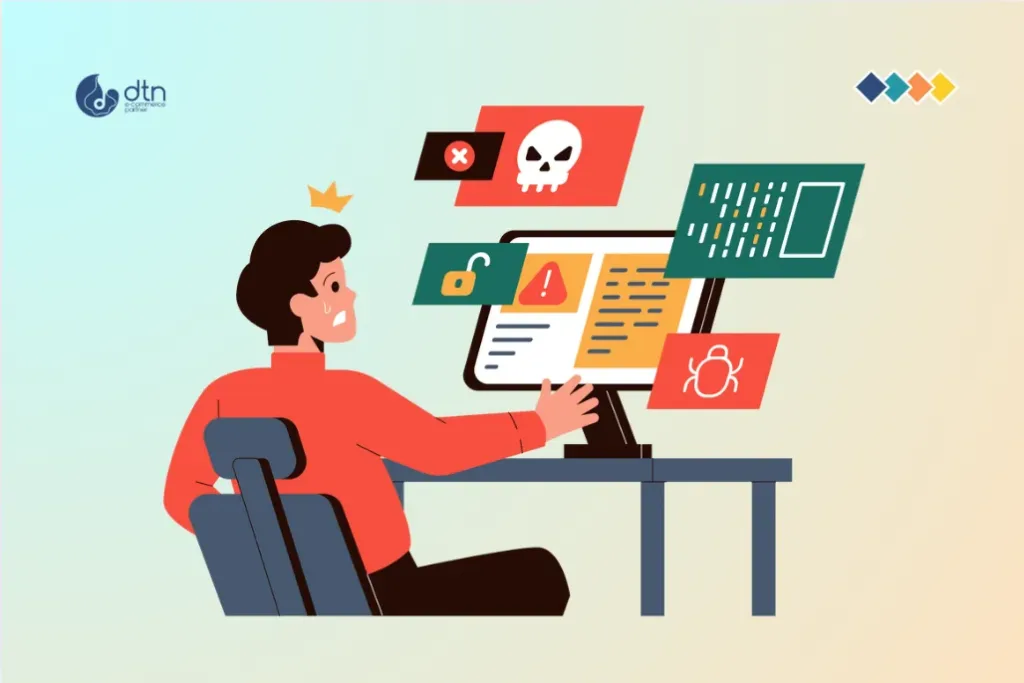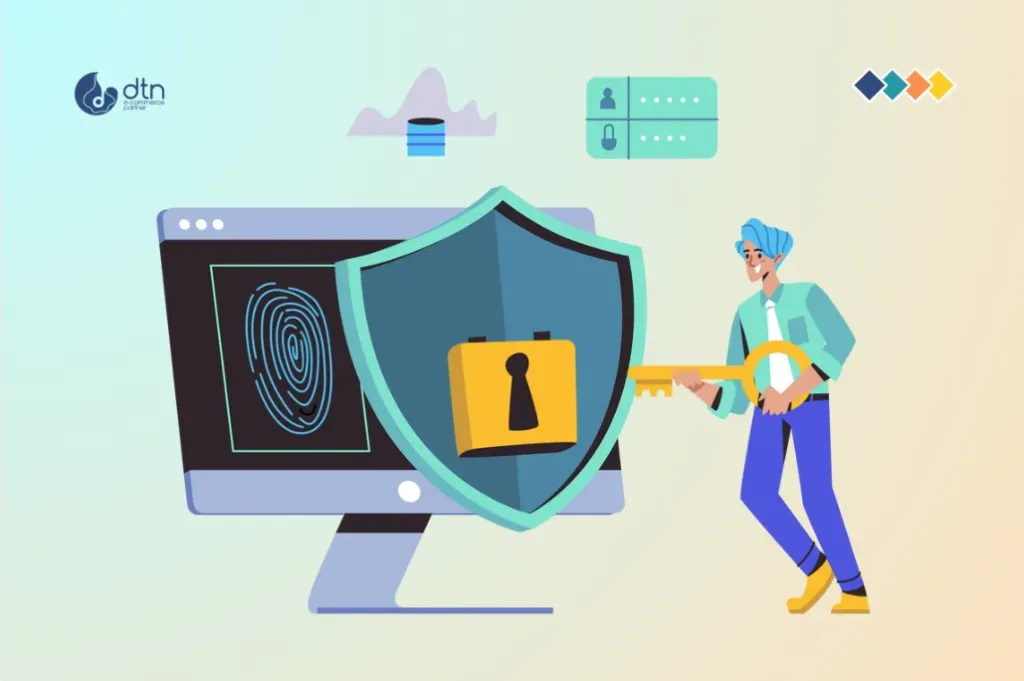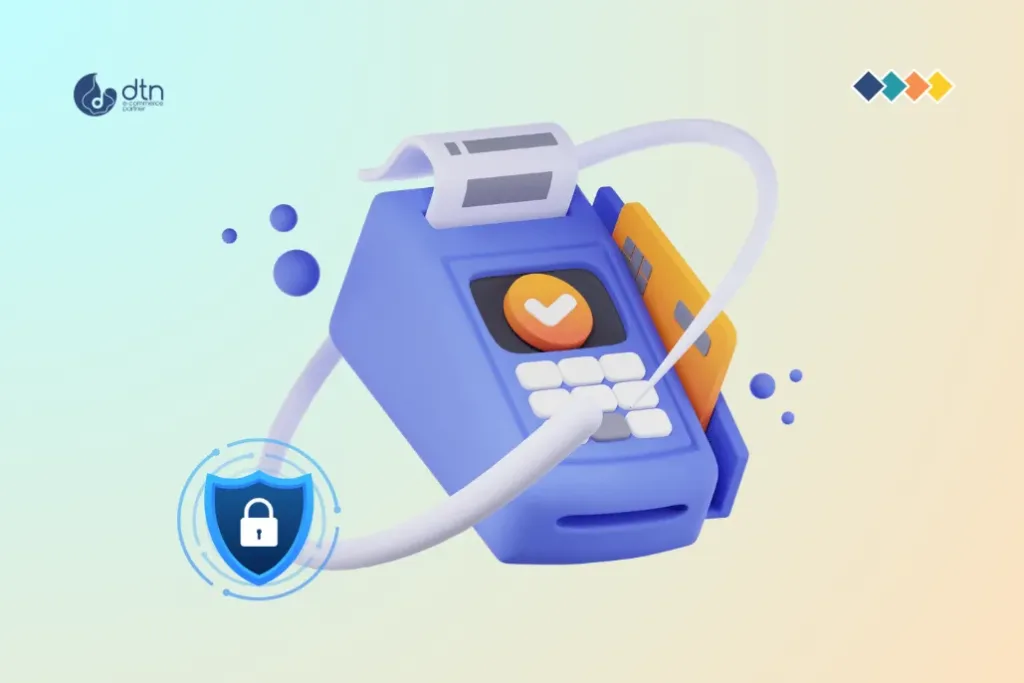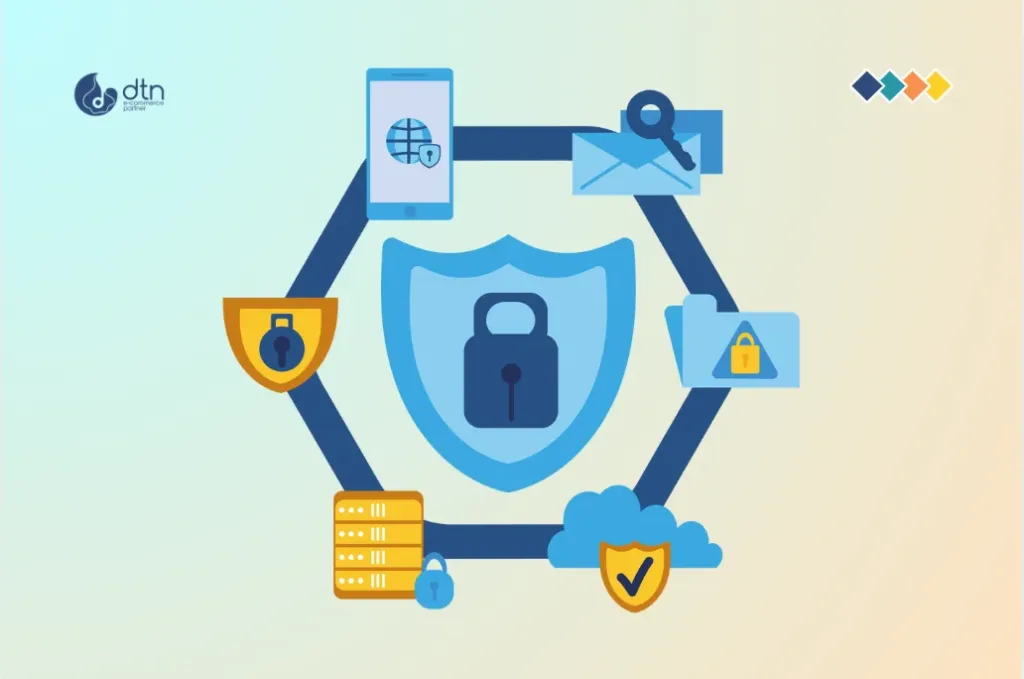In the bustling world of e-commerce, security isn’t just a good idea – it’s a fundamental necessity. A security breach can decimate your reputation, drain your finances, and expose your customers to significant risks. While comprehensive security is a complex undertaking, implementing basic safeguards is achievable and essential for any online business, regardless of size. This post will explore critical aspects of basic website security for e-commerce, providing actionable steps you can take to protect your business and your customers.
Table of Contents
Understanding the Threats
Before diving into solutions, let’s understand the threats you’re facing. E-commerce websites are attractive targets for various malicious actors, including:
- Hackers: Aim to steal sensitive data, such as customer credit card information, login credentials, and personal details, for financial gain or identity theft.
- Phishers: Employing deceptive techniques to trick users into revealing their credentials or downloading malware.
- Malware Injectors: Inserting malicious code into your website to redirect traffic, steal data, or disrupt operations.
- Denial-of-Service (DoS) attackers: Flooding your server with traffic to make your website inaccessible to legitimate users.
- SQL Injection Attackers: Exploiting vulnerabilities in your database to gain unauthorized access and manipulate data.
- Cross-Site Scripting (XSS) Attackers: Injecting malicious scripts into your website to steal cookies, redirect users, or deface your site.

Fundamental Security Measures
These measures form the bedrock of your e-commerce website security:
Secure Hosting
- Choose a reputable hosting provider: Look for providers with robust security features, including firewalls, regular backups, and DDoS protection. Shared hosting is often cheaper but less secure; consider VPS or dedicated servers for enhanced security.
- SSL/TLS Certificate: This is non-negotiable. An SSL certificate encrypts the communication between your website and the user’s browser, protecting sensitive data like passwords and credit card information. Look for certificates from trusted Certificate Authorities (CAs) and ensure your site uses HTTPS. Your browser will indicate this with a padlock icon in the address bar.
Strong Passwords and Access Control
- Complex and Unique Passwords: Employ solid and unique passwords for all your website accounts, including administrative panels, database access, and hosting control panels. Password managers can help you generate and manage these securely.
- Two-Factor Authentication (2FA): Implement 2FA wherever possible. This adds an extra layer of security by requiring a second verification method, such as a code from your phone and your password.
- Principle of Least Privilege: Grant users only the necessary access permissions. Avoid granting excessive administrative privileges to employees unless absolutely essential. Regular audits of user permissions are recommended.
Regular Software Updates
- CMS Updates: Keep your Content Management System (CMS), like WordPress, Magento, or Shopify, up-to-date with the latest security patches. Neglecting to update software makes it an easy target for attackers.Plugin/Extension Updates: Regularly update plugins and extensions used on your website. Outdated plugins often contain known vulnerabilities.
- Theme Updates: Similar to plugins, update your website theme to the latest version to address security flaws.
Secure Coding Practices
- Input Validation: Validate all user input to prevent SQL injection and cross-site scripting attacks. Sanitize data before using it in database queries or displaying it on the website.
- Output Encoding: Properly encode all data displayed on your website to prevent XSS attacks.
- Regular Security Audits: Conduct regular security audits of your website’s code to identify and fix vulnerabilities. Engage a security professional for comprehensive audits.
Firewall Protection
- Web Application Firewall (WAF): A WAF acts as a shield between your website and the internet, filtering malicious traffic and preventing common attacks like SQL injection and XSS. Many hosting providers offer WAF services.
- Server-Side Firewall: Your server should also have a firewall to prevent unauthorized access.
Regular Backups
- Automated Backups: Implement an automated backup system to regularly create backups of your website’s files and database. This empowers you to quickly recover your website in the event of a security breach or any unforeseen disaster, ensuring your online presence remains protected.
- Offsite Backups: Store your backups in a secure location, ideally offsite, to prevent data loss in case of a server failure or physical damage.

Payment Gateway Security
If you process payments directly on your website, extra security measures are crucial:
- PCI DSS Compliance: The Payment Card Industry Data Security Standard (PCI DSS) is a set of security requirements designed to protect credit card information. If you handle credit card data, you must comply with PCI DSS.
- Use a reputable payment gateway: Choose a well-established one that adheres to strict security standards. These gateways handle the sensitive aspects of payment processing, reducing your liability.
- Avoid storing sensitive payment data: If possible, never store sensitive payment information like credit card numbers on your server. Instead, utilize tokenization or other secure payment processing methods.

Monitoring and Prevention
- Security Monitoring Tools: Implement security monitoring tools to detect suspicious activity on your website. These tools can alert you to potential attacks in real time.
- Intrusion Detection System (IDS): An IDS can detect and alert you to unauthorized access attempts and other malicious activities.
- Regular Security Scanning: Regularly scan your website for vulnerabilities using automated tools or hire a penetration testing professional.
- Security Awareness Training: Train your employees on best security practices, including password security, phishing awareness, and recognizing suspicious activity.

Conclusion
Implementing basic website security measures is a crucial investment for any e-commerce business. While achieving perfect security is an ongoing process, focusing on the above steps significantly reduces your vulnerability to attacks. Remember that security is a layered approach, and combining multiple security measures provides the most robust protection for your business and your customers. Feel free to consult security professionals for guidance and support in establishing a solid security posture.
Frequently Asked Questions
We’ve compiled a list of answers to common questions.
Why is website security crucial for e-commerce businesses?
Website security is essential for e-commerce businesses because a single security breach can harm your reputation, lead to financial losses, and compromise customer data. Implementing basic security measures protects both your business and your customers from various threats.
What are some common threats to e-commerce websites?
E-commerce websites face threats from hackers seeking to steal sensitive data, phishers attempting to trick users into revealing credentials, malware injectors inserting malicious code, DoS attackers flooding servers, SQL injection attackers exploiting database vulnerabilities, and XSS attackers injecting harmful scripts.
What basic security measures should every e-commerce website implement?
Fundamental security measures include choosing secure hosting, obtaining an SSL/TLS certificate, using strong and unique passwords, enabling two-factor authentication (2FA), keeping software and plugins updated, practicing secure coding, implementing firewall protection, and performing regular backups.
How can I enhance payment security on my e-commerce site?
To enhance payment security, ensure PCI DSS compliance if you handle credit card data, use a reputable payment gateway that follows strict security standards, and avoid storing sensitive payment information on your server. Utilize secure payment processing methods like tokenization.
What is the role of employee training in website security?
Employee training is vital for website security. Security awareness training helps your team recognize phishing attempts, practice password security, and identify suspicious activities. Educated employees are less likely to fall victim to attacks and can help maintain a secure environment.
What should I do if I suspect that my website has experienced a security breach?
If you suspect a security breach, immediately investigate the issue by checking logs and monitoring tools for unusual activity. Disconnect affected systems, change passwords, and inform your hosting provider. Consider hiring a security professional to assess and mitigate the damage.
Are there tools available to help monitor website security?
Yes, various security monitoring tools, such as intrusion detection systems (IDS) and regulsecurity scanning tools, are available to detect suspicious activity. These tools provide alerts for potential attacks and help you maintain a secure e-commerce site.



